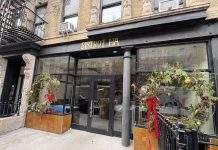
This week, it was announced that people living throughout much of Lower Manhattan will be covered by the $2.8 billion 9/11 Compensation Fund. The expanded zone encompasses portions of the Lower East Side, meaning those who became sick due to toxic fumes and dust from Ground Zero will be eligible for compensation, even if they did not live or work in the immediate area around the World Trade Center site.
The new zone is bounded by Canal Street on the north and extending eastward “to the intersection of Canal Street and East Broadway, north on East Broadway to Clinton Street, and east on Clinton Street to the East River.”
In a statement, Assembly Speaker Sheldon Silver said:
The toxic dust produced by the collapse of the Twin Towers and by the subsequent fires spread to a wide area of my Lower Manhattan community and affected the health of many who lived immediately to the north and east of the site. I am pleased that (9/11 Fund) Special Master Birnbaum has responded to our repeated requests to expand the geographic boundaries for those eligible to receive compensation. Because of this decision, so many of my Lower Manhattan neighbors will be eligible for the health care compensation that they so clearly deserve.
And City Councilmember Margaret Chin added:
I am encouraged by the broadening of the (Victim Compensation Fund) area to include thousands of individuals and families who have been profoundly affected physically and emotionally by the September 11th attacks. Although I advocated for a more inclusive boundary, the expansion of the VCF area to cover residents between Reade and Canal Street, many of which receive treatment at the WTC Environmental Health Center, is a welcome change.
In the past, Lower Manhattan residents have called on the government to compensate victims with cancer and Post Traumatic Stress Disorder (officials have said there is no conclusive proof that these conditions were caused by 9/11). Chin believes cancer should be covered. “Moving forward, I urge the administrator of the WTC Health Program to fully examine the link between exposure to toxic dust and subsequent diagnoses of cancer, especially in first responders and those who aided in the clean-up effort,” Chin said in a press release.
You can read more about the Compensation Fund by following this link.









